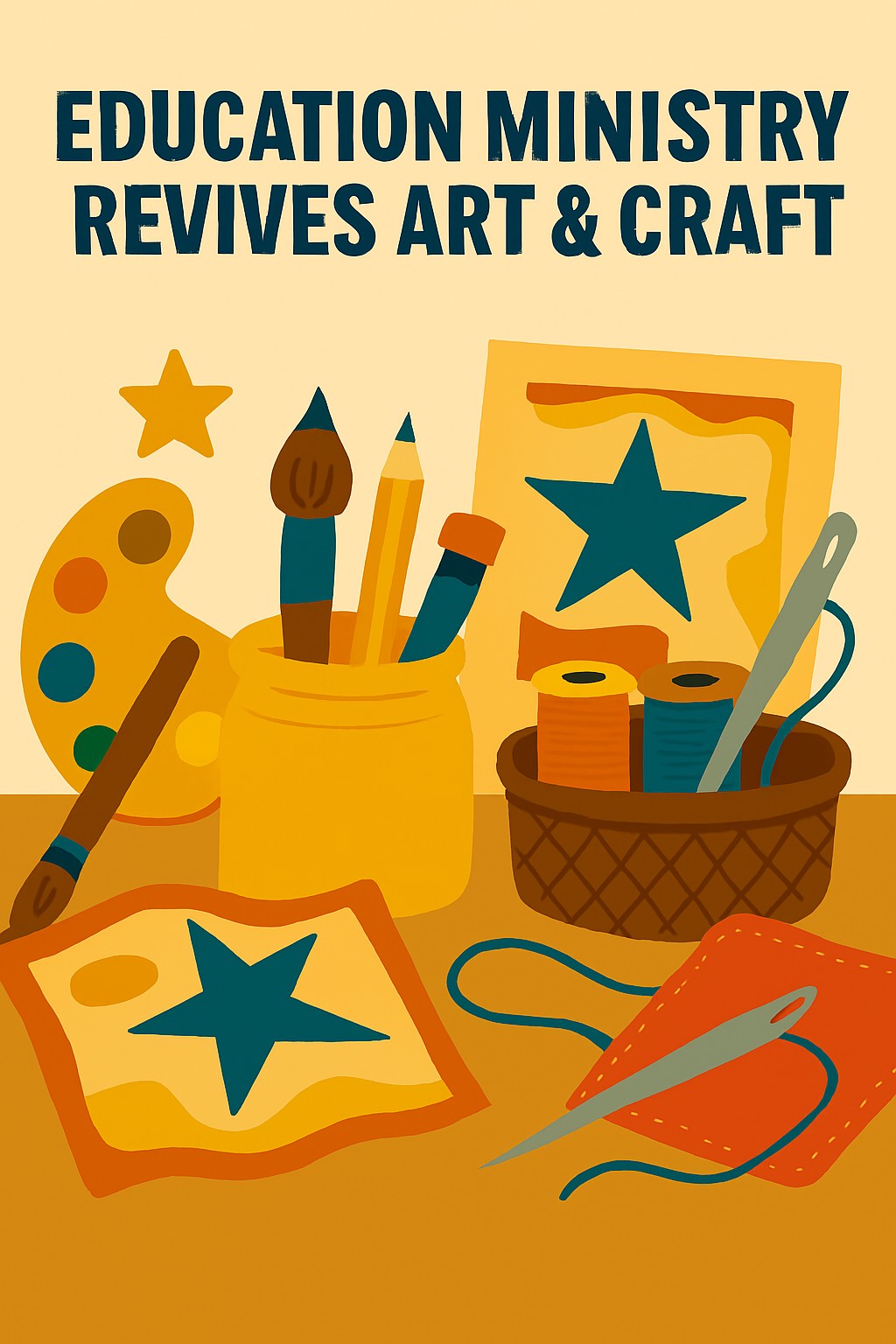🎨 Ghana’s Education Ministry Revives Art, Craft & Needlework in Basic Schools

In a bold move to reshape foundational learning and foster creativity among young learners, Ghana’s Ministry of Education has announced the reintroduction of Art, Craft, and Needlework into the basic school curriculum. The initiative, set to roll out in the upcoming academic year, marks a significant shift in the country’s education strategy, emphasizing holistic development alongside core academic subjects.
🧵 A Return to Creative Roots
Education Minister Haruna Iddrisu unveiled the policy on August 5, 2025, during an engagement with Home Economics teachers at Oyoko Methodist Senior High School in the Eastern Region. He emphasized that the decision is part of broader curriculum reforms aimed at equipping students with practical skills, critical thinking abilities, and a deeper appreciation for Ghana’s cultural heritage.
“We believe that a holistic education goes beyond academic subjects. By introducing Art, Craft, and Needlework, we will be providing the youngest learners with the right tools to develop their creative skills and critical thinking,” Iddrisu stated.
📚 Curriculum Reform with a Purpose
The reintroduction of these subjects is designed to complement literacy and numeracy education by integrating hands-on, experiential learning. According to the Ministry, the reforms will:
-
Encourage self-expression and innovation among pupils
-
Promote cultural literacy and traditional craftsmanship
-
Prepare students for future careers in creative industries
-
Strengthen foundational learning through visual and tactile engagement
The Ministry also noted that the subjects will be tailored to age-appropriate levels, ensuring that learners from early primary through junior high school benefit from structured creative education.
🤝 Stakeholder Collaboration
To ensure smooth implementation, the Ministry of Education will collaborate with educators, curriculum developers, and creative arts professionals. Training workshops and resource development are already underway, with a focus on:
-
Equipping teachers with modern pedagogical tools
-
Developing locally relevant teaching materials
-
Integrating digital and traditional art forms
-
Ensuring equitable access to supplies across urban and rural schools
🌍 Global Standards, Local Identity
The policy aligns with global education trends that prioritize creativity, innovation, and practical skills. At the same time, it reinforces Ghana’s commitment to preserving cultural identity through education. Experts in the education sector have welcomed the move as a long-overdue investment in the country’s future workforce.
“This is a crucial step in preparing our children for a future that values innovation and practical skills,” Iddrisu added.
🖼️ What’s Next?
As the academic year approaches, schools across Ghana are gearing up for the rollout. Pilot programs in select districts will test curriculum delivery, while feedback from educators and students will shape nationwide adoption.
TrayNews.com will continue to follow this story, spotlighting classroom transformations, teacher innovations, and student creativity as Ghana reclaims its artistic legacy in education.



0 Comments
No comments yet, be the first to comment